(MENAFN- Asia Times) Satoru Nomura, the 74-year-old head of Japan's infamous Kudo-kai crime syndicate, made news in August when he became the first active yakuza boss to receive a death sentence.
Handed down by a district court in Fukuoka, the sentence was punishment for his involvement in a murder and three other violent assaults.
Despite the lack of direct evidence linking him to the murders, the court concluded that Nomura, as the head of an organization known for its brutality, had supervisory responsibility in the killing committed by his underlings as well as the three other incidents.
Most media analysts and yakuza experts had dismissed any chance that Nomura would be sentenced to hang, believing that there was enough reasonable doubt about who ordered the killing.
They also reasoned that Nomura had not met the criteria required for capital punishment that were set out in the trial of Norio Nagayama, a disadvantaged youth who committed four robbery murders in 1968 as a 19-year old and who was eventually hanged in 1997. These guidelines include factors such as level of viciousness, motive, the number of victims and the degree of remorse.
In Nomura's case, the experts proved to be mistaken. Some observers compared the judge's ruling to a recent civil case applying“employer's responsibility” to top gang leaders as part of the country's push to weaken the influence of crime syndicates.
This legal approach is similar to that of the racketeer-influenced and corrupt organizations (RICO) laws in the United States, which permit leaders of crime syndicates to be tried for crimes committed by their underlings.
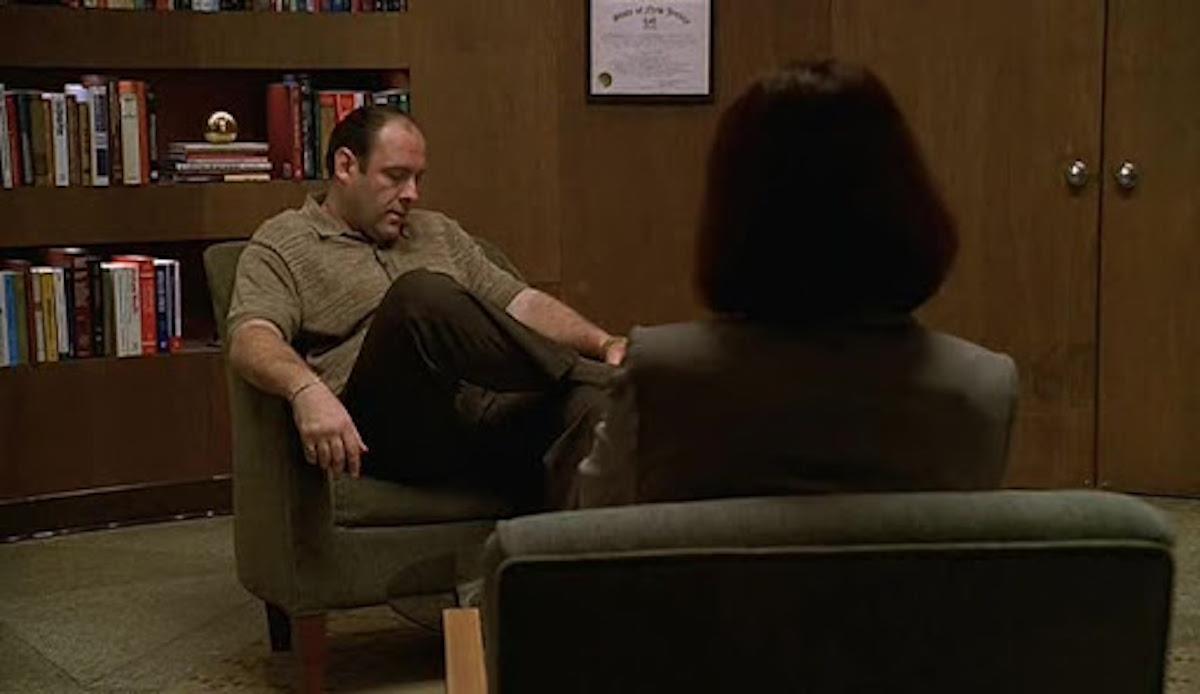
When Tony Soprano in episode 1 tells his psychiatrist what's bugging him, she briefly wonders: Who's this Rico you're talking about. Photo: Redditt
The same principle also applied in 2004 when doomsday cult Aum Shinrikyo leader Chizuo Matsumoto drew a death sentence solely on the testimony of his followers. They said he had instructed them to release the toxic gas sarin in the Tokyo subway system in a 1995 attack that would kill 14 people, as well as to commit other murders over the years.
A panel of academics, appearing on national public broadcaster NHK's Close Up Gendai in early October, argued that the August sentence against the gang boss was unjustified and expressed concern that this type of death sentence might be used to execute other criminals leading other organizations.
Perhaps they were referring to communists and other left-wing terrorists in Japan's prisons who have so far escaped being sentenced to death. Fusako Shigenobu, of Japanese Red Army infamy, is one who many believe should have received the death penalty. In 1974, three members of the JRA carried out an attack on the French Embassy in the Hague and in 1975 another group carried out the Lod Airport Massacre in Israel, in which 26 people were killed.
The Kudo-kai yakuza gang is based in the city of Kita Kyushu, on Japan's third-largest island, where it built and maintained a fortress-like headquarters protected by high walls, barbed wire and high-tech security cameras. (Authorities tore the structure down in 2019.) Dating to the pre-war days, the gang has been described by the National Police Agency as“an extremely vicious organization.”
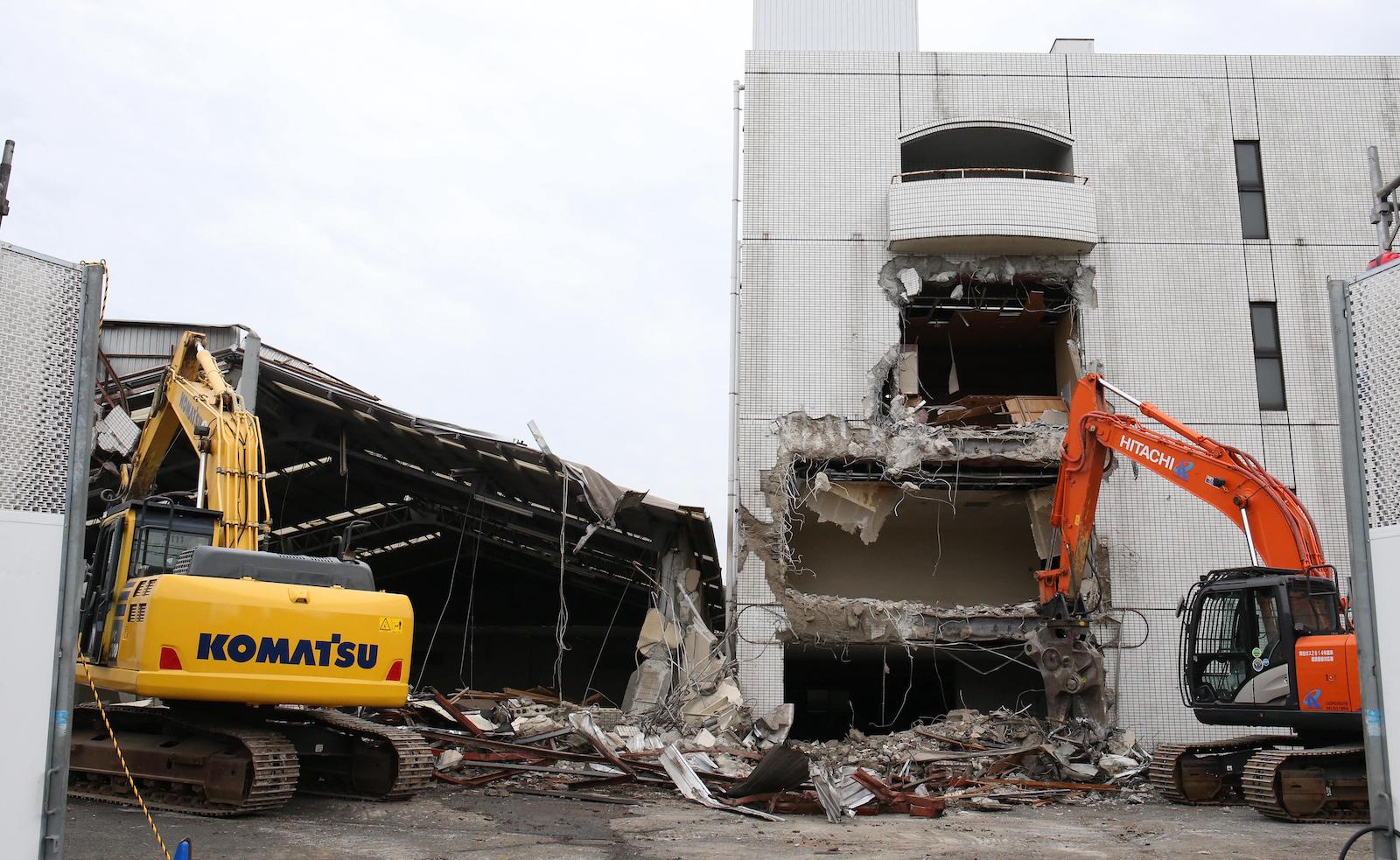
The headquarters building of Kudo-kai was demolished by authorities on November 22, 2019. Photo: AFP / Yuji Kato / The Yomiuri Shimbun
The gang is distinguished from other yakuza groups by a willingness to attack civilian owners of businesses large and small who refuse to pay mikajime fees – protection money. In one famous case the gang detonated hand grenades in a nightclub run by the leader of an anti-yakuza group who had the temerity to post a“no gangsters allowed” sign.
“Kudo-kai is known for using hand grenades, chemical weapons (rat poison), pistols and machine guns, among other things,” says underworld authority Hiroki Allen,“They are quite dangerous.”
Among other crimes, they are also suspected of attacking a local Toyota factory, bombing the home of the president of Kyushu Electric Power and shooting the president of a rival construction company. Those targeted had refused either to pay protection money or to accept bribes.
One of the gangsters' more notorious undertakings was a series of attacks in the year 2000 when they hurled Molotov cocktails at the Shimonoseki office and residence of Shinzo Abe, later to become prime minister of Japan, after Abe's staff apparently failed to pay the Kudo-kai for“services rendered” during an election.
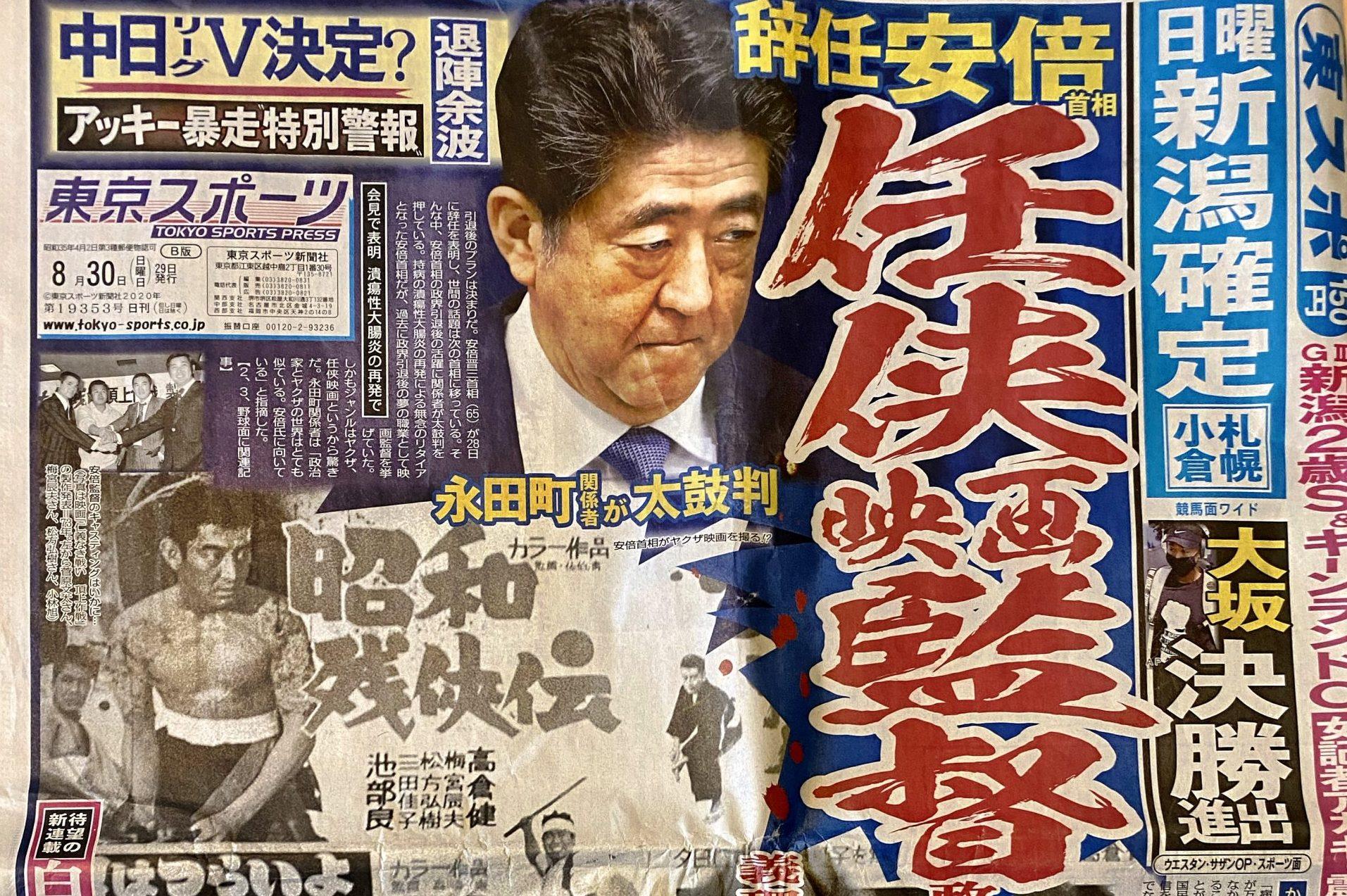
The cover page of the August 30, 2020, edition of the Tokyo Shimbun reported on then-Prime Minister Shinzo Abe's fascination with the yakuza. Photo: Jake Adelstein
With a sphere of activity ranging from drug trafficking to unlawful involvement in public works projects to dealing in rocket launchers and rocket-propelled grenades, the Kudo-kai has also waged war against rival Chinese gangs – once going so far as to attack the consulate of the People's Republic of China with shotguns and a dump truck.
As for Nomura himself, he started life as the son of a well-to-do real estate salesman. He began stealing cars and frequenting gambling dens as a juvenile, missing his junior high school graduation ceremony in 1962 thanks to a stint in a local youth detention center.
Over-sensitive about his height and slight build, Nomura carried a wooden sword to compensate for his inability to fight barehanded and joined the Kudo-kai in his 20s.
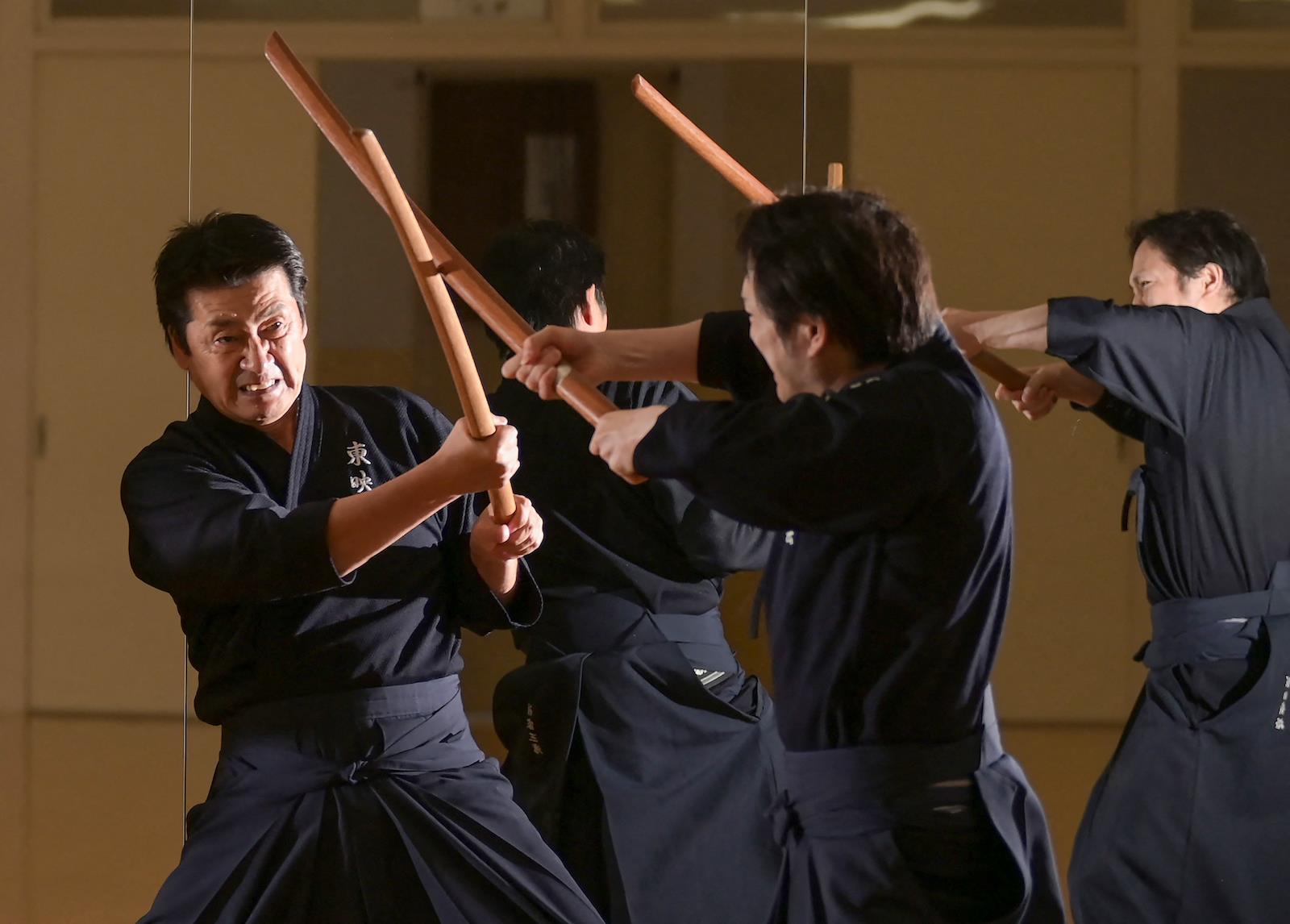
Wooden swords: Members of Tusurugikai, which means sword group, practice stage fighting, at Toei Studios Kyoto on October 4. Tusurugikai is a group of cinematic sword performers working at the studio to improve, develop and pass on Japan's cinematic sword-fighting traditions. Photo: AFP / Michihiro Kawamura / The Yomiuri Shimbun
Thanks to his ability to earn – Nomura brought in the equivalent of hundreds of millions of dollars in proceeds from gambling, loan sharking and real estate – he was made gang boss in 2011.
Known for his violent temper, Nomura became enraged in 2012 when a penis enlargement procedure did not produce the desired results. He ordered an underling to stab the supervising nurse. She survived but was severely injured.
End of an era – or not?
One wonders what effect the death sentence will ultimately have on Japan's criminal underworld. Reformed yakuza Satoru Takegaki told the Shukan Shincho magazine recently that the ruling was epoch-making:“It's more likely some yakuza will wash their feet and think the gang business isn't worth it.”
But will they?
Anti-gang laws have been in place since a 1999 crackdown on organized crime, forbidding gang members to hold bank accounts and operate businesses, among other things. This has reduced official gang membership to about 25,000 from a turn-of-the-century total of over 100,000, with Kudo-kai membership down by two-thirds from a high of 1,200. In 2020, local authorities demolished the gang's headquarters.
Accordingly, police will note, arrests have fallen at the same rate in the same period.
But statistics can be deceiving. Among crimes whose numbers are recorded in the statistics, some 70% deal with common theft, such as bicycle theft, while 20% deal with reckless driving – neither of those exactly in the yakuza oeuvre.
At the same time, traditional sources of underworld income – gambling, prostitution and drugs – remain large and financial crimes are increasing.
Yakuza are active in underground casinos, mobile gambling sites and mahjong parlors, as well as online gambling – which, although it's illegal in Japan, has experienced a dramatic spike in recent years.
To cite one publicly known example, reported by the Asahi Shimbun, monthly online visits by Japanese to the Curacao-based casino site Vera and John increased 119-fold from 648,000 in December 2018 to 77.51 million in January 2020. Although the figure declined to 19.88 million in August 2020, it rose again to 49.38 million last November.
Yakuza have also stepped up their activities in child prostitution and child pornography, with offenses in that category doubling in the second decade of the 21stcentury.
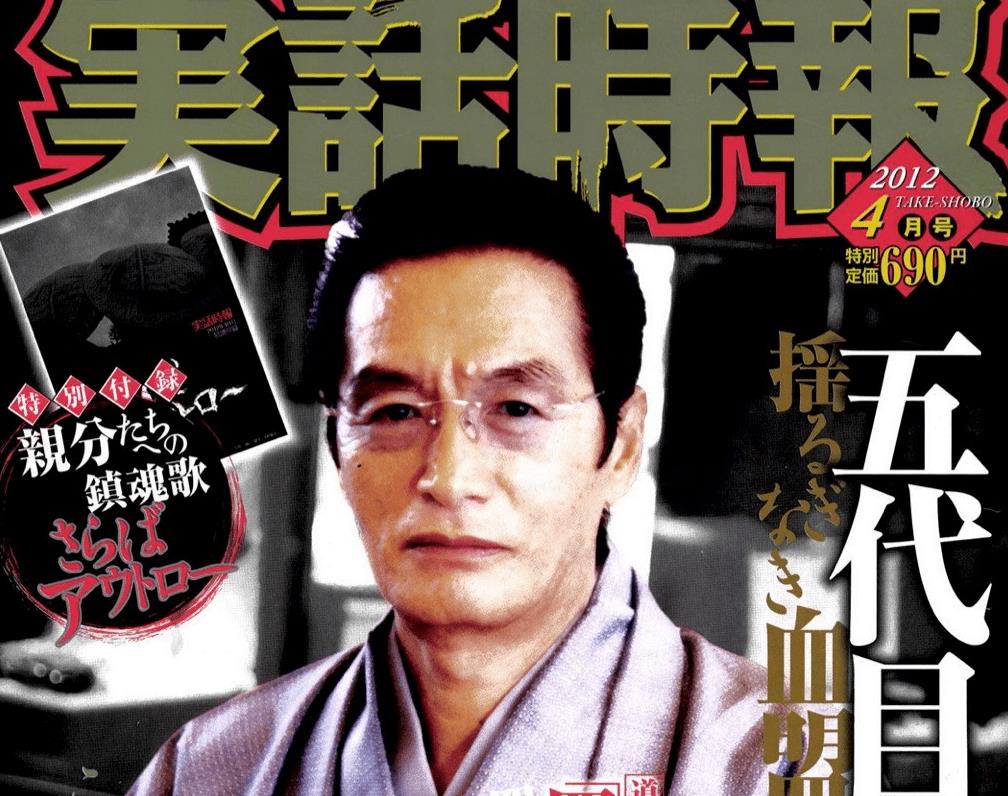
Yakuza bosses such as Satoru Nomura had a big following through fanzines. Photo: Jake Adelstein
In the lucrative field of drugs, cannabis drug offenses have nearly quadrupled since 2000, according to the most recent White Paper on Crime issued by the police, while narcotic and psychotropic crimes have doubled in that same time frame.
China Triads and Mexico cartels have replaced North Korea as prime suppliers of crystal methamphetamine and fentanyl in Japan and by the dawn of the third decade of the 21st century, according to police, there was more cocaine in Tokyo than ever before.
In November 2019 police discovered an astonishing 400 kilograms of cocaine in a shipping container in Kobe, at the time an all-time record for Japan. It was said to be worth more than $75 million on the street.
In April 2020, customs authorities in Yokohama seized 700 kilograms of cocaine with a street value of about $130 million. The cocaine was hidden in a shipping container on a vessel docked in the harbor, nestled amidst boxes of bananas and other items.
A Finance Ministry official declared that Japan had now become“a major market” in the world of illegal drugs, noting that street prices for stimulants were higher than those overseas.
Police in Tokyo's Roppongi entertainment district adopted a policy of stop-and-frisk for narcotics. A lawyer friend, a man from Vancouver, stopped to watch one early-morning frisking by a group of four policemen and was himself searched because the lead cop thought he was“acting suspiciously.”
Money laundering has also spiked in the wake of the rise of narcotics deals with yakuza gangs moving hundreds of billions of yen through Bitcoin and other cryptocurrencies.
Another growing source of revenue can be seen in so-called“specialized fraud” cases – impersonating family members, police officers or bank officials in order to raid the savings accounts of unsuspecting individuals.
Thus, to sum up, while yakuza gangs may not operate as openly as before, they are just as active. They have simply become more discreet.

Logo of the Kudo-kai. Photo: Wikipedia
The lengthy appeal processes of Japan's higher courts can take several years. Convicted mass murderer Sadamichi Hirasawa died of natural causes at the age of 95, after awaiting execution for 32 years.
Thus, Nomura may well die in prison before he has to face the hangman's noose. While his subordinates may think twice about committing murder (or ordering it) they will no doubt continue to operate pretty much as before – just farther underground.
Robert Whiting is a Tokyo-based journalist and author of books including You Gotta Have Wa and Tokyo Underworld. His memoir Tokyo Junkie: 60 Years of Bright Lights and Back Alleys … and Baseball was published this year.
MENAFN11102021000159011032ID1102949555